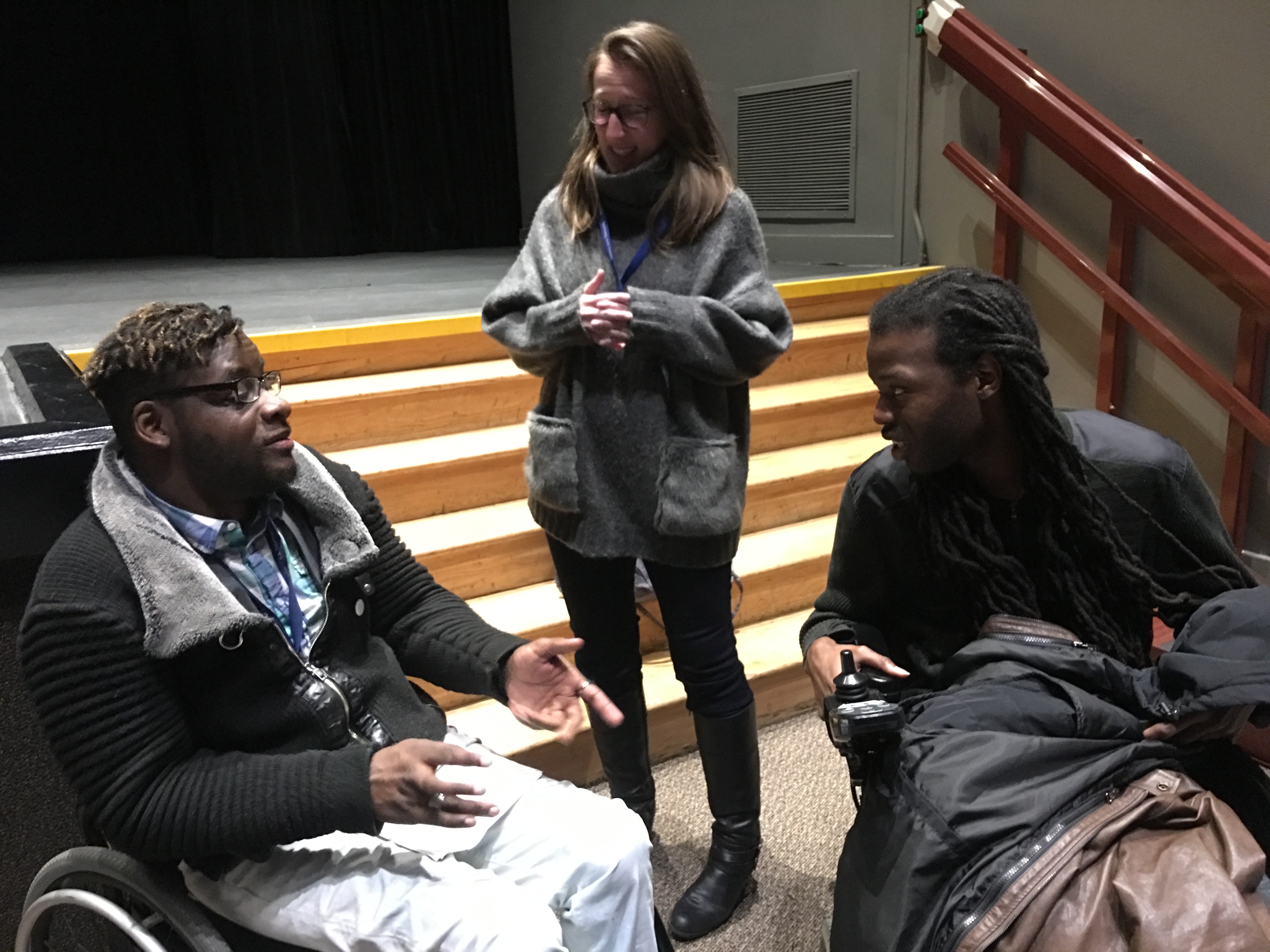By Makea Luzader
For The Diamondback
University of Maryland students lined up Wednesday for a free screening of The Shape of Water, co-hosted by the President’s Commission on Disability Issues and the Office of Diversity and Inclusion.
The screening was part of the ongoing Rise Above series, a month-long initiative hosted by the Office of Diversity and Inclusion to “confront and eradicate the oppressions that hurt us all,” according to its Facebook page. Students and other attendees also participated in a discussion regarding the disability portrayed in the movie.
The Shape of Water, directed by Guillermo del Toro, has generated some controversy in terms of its depiction of disability in romance and sexuality as well as its casting. The protagonist, a woman who is non-verbal and has a disability, was played by Sally Hawkins, an abled actress.
D’arcee Neal, a first year graduate student studying language writing and rhetoric and the graduate assistant for the President’s Commission on Disability Issues, helped arrange the event. Neal also has a physical disability.
“Having seen this movie, it was fantastic, and I was like, ‘We should really bring this to Maryland because it encapsulates everything we’re trying to do about talking about disability and overcoming it and how to deal with it,'” Neal said.
Ana Palla-Kane, co-chair of the President’s Commission on Disability Issues, said she hopes the film will provide more exposure to individuals with disabilities.
“We hope that people can gain new perspectives about people with disabilities and get even their own perceptions about people with disabilities and begin to get the patterns that exist in society,” Palla-Kane said.
Following the film, attendees discussed different opinions and criticisms of the movie, such as a link between monsterhood and disability, sexuality, and the movie’s casting. They also referenced personal anecdotes and specific scenes they connected to during the movie.
There were two sign language interpreters throughout the discussion.
The Office of Diversity and Inclusion also hosted an event last week focusing on blackness and disability, said Dina Shafey Scott, a training and education specialist in the office.
“The [disabled] community in general on this campus has been fighting for their rights in order to just get into a building,” Shafey Scott said.
Joseph Williams, a program assistant at the office who gets around using a wheelchair, said he experienced trouble after realizing the men’s bathroom in Hoff Theater was not wheelchair accessible.
“It’s just like everything else — everything needs work,” Williams said. “Accessibility is a big issue, and I think if people started to think about accessibility as something that helps everybody look at disabled people as part of everybody, these issues won’t continue to happen.”



